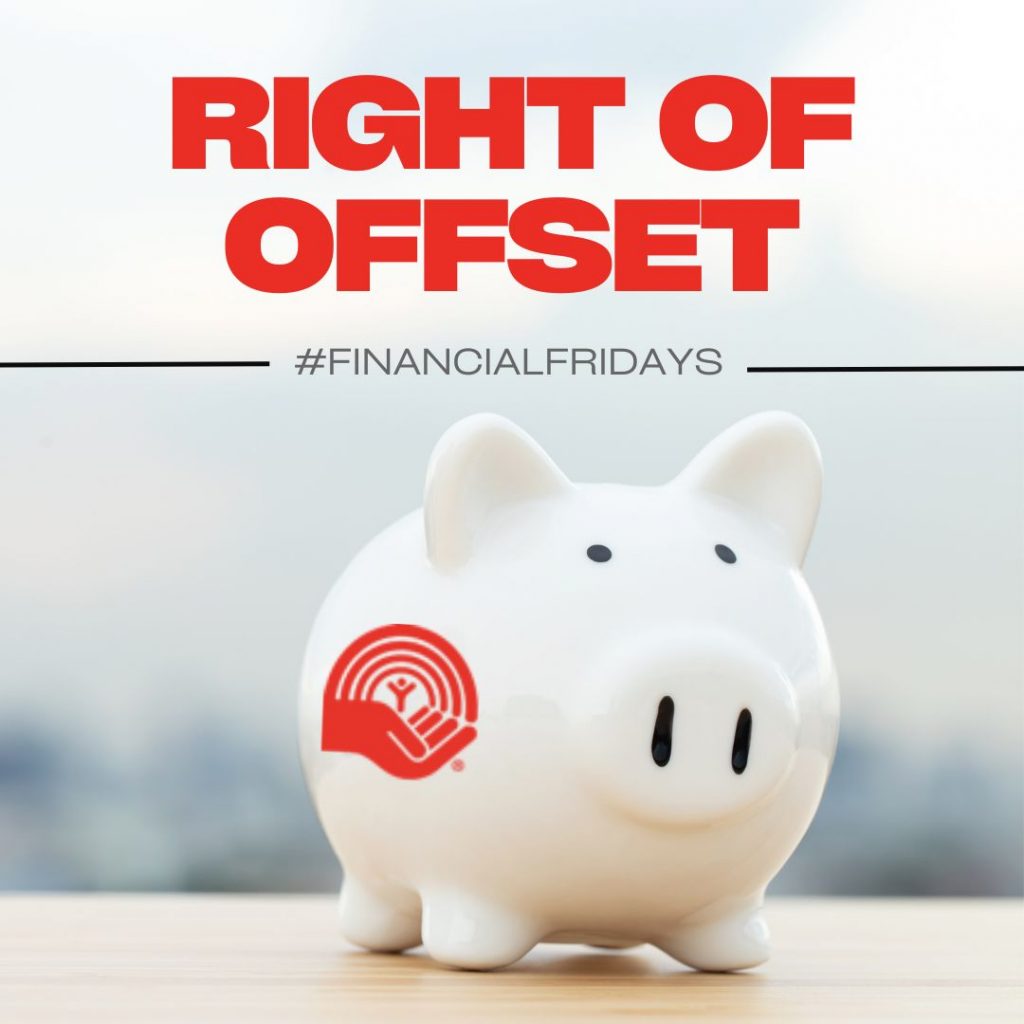#FinancialFridays: Right of Offset

The right of offset is a right that allows financial institutions to recover money owed to them by their depositors on outstanding debts. However, it needs to be included as a clause in a financial institution’s agreements to be enforceable.
Here’s an example of how the right of offset can work: Say you’re defaulting on a loan you have with your bank that isn’t secured with some form of collateral that the bank could take. They could pull the money you owe out of the bank accounts you have with them to make up for the loss.
One day, you check your bank balance to see that your account is missing a lot of money and you don’t know why. When you check the transaction history, you see a charge for payment to a loan or credit card account you had with that bank. And, sure enough, when you check your debt with that card/loan, you find that the debt has been paid off with the money taken from your account.
Can the Bank Take Money from My Account?
The short answer is “Yes. In certain circumstances, the bank can take money from your account.”
If you have a loan, line of credit, credit card, or other debt from a financial service with a bank where you have a chequing or savings account, the bank has the right to reclaim that money from your account if you default on that debt.
What’s really distressing for many is that the right of offset in Canada allows the bank to do this without:
- Giving you advance warning
- Asking your permission
- Leaving you with any money in your account if you owe more than you have in the account
In fact, if your account doesn’t have enough to cover your debt, your bank may be able to charge a non-sufficient funds (NSF) fee—potentially adding to your debt. They can literally take your last dollar without telling you and charge a fee if you go negative on your bank balance because of it.
Tips for Avoiding “Right of Offset” Withdrawals
So, what can you do to avoid the right of offset from credit card debt or other forms of debt held by your bank? Some things you can do include:
- Negotiating with Your Lender
- Not Getting Loans/Credit Cards with Your Bank
- Don’t Get a Joint Account with Someone in Debt to Their Bank
- Investigate Insolvency Options with a Licensed Insolvency Trustee
- Check Loan/Credit Card Agreements for Right of Offset Clauses
- Pay Down Your Debt When You Can

